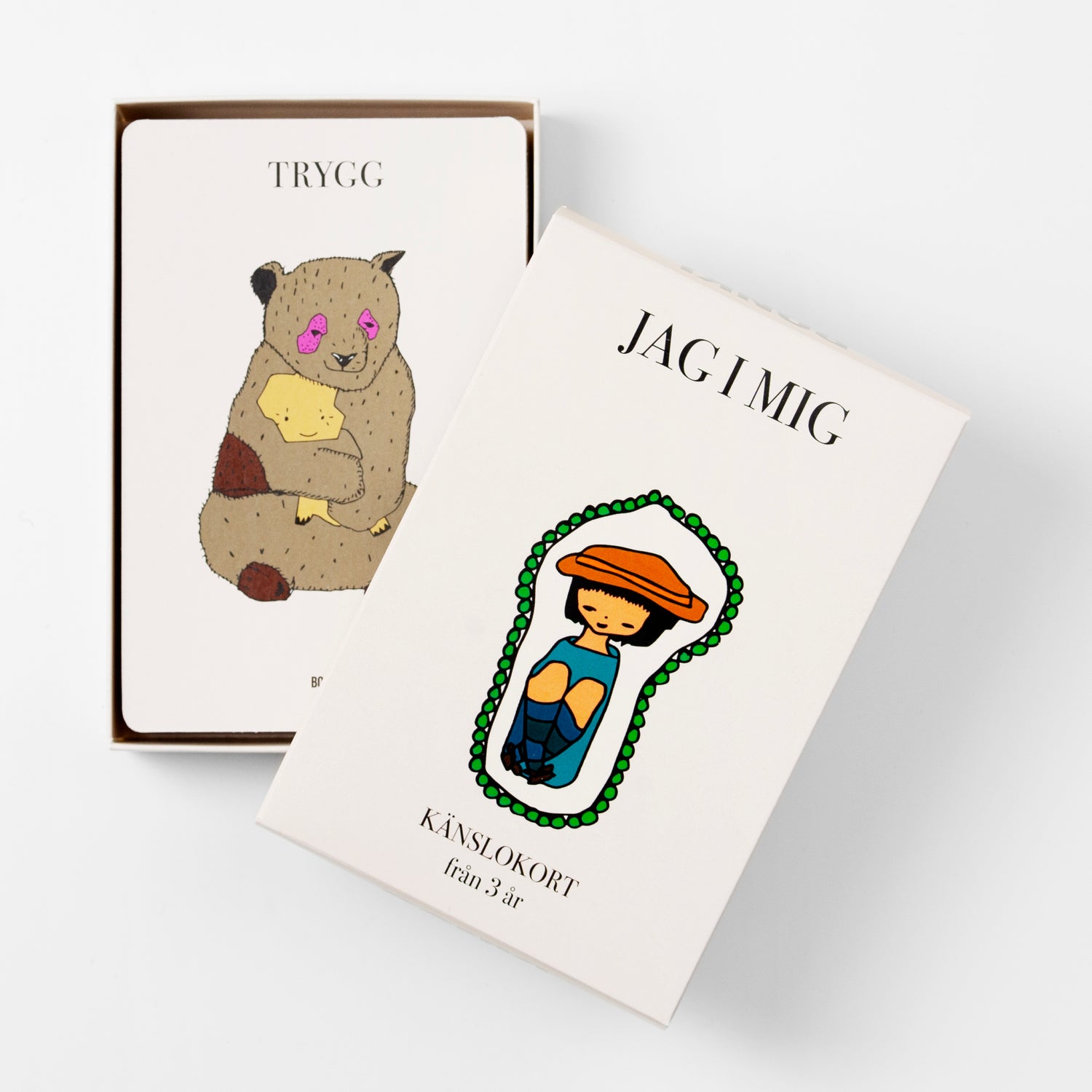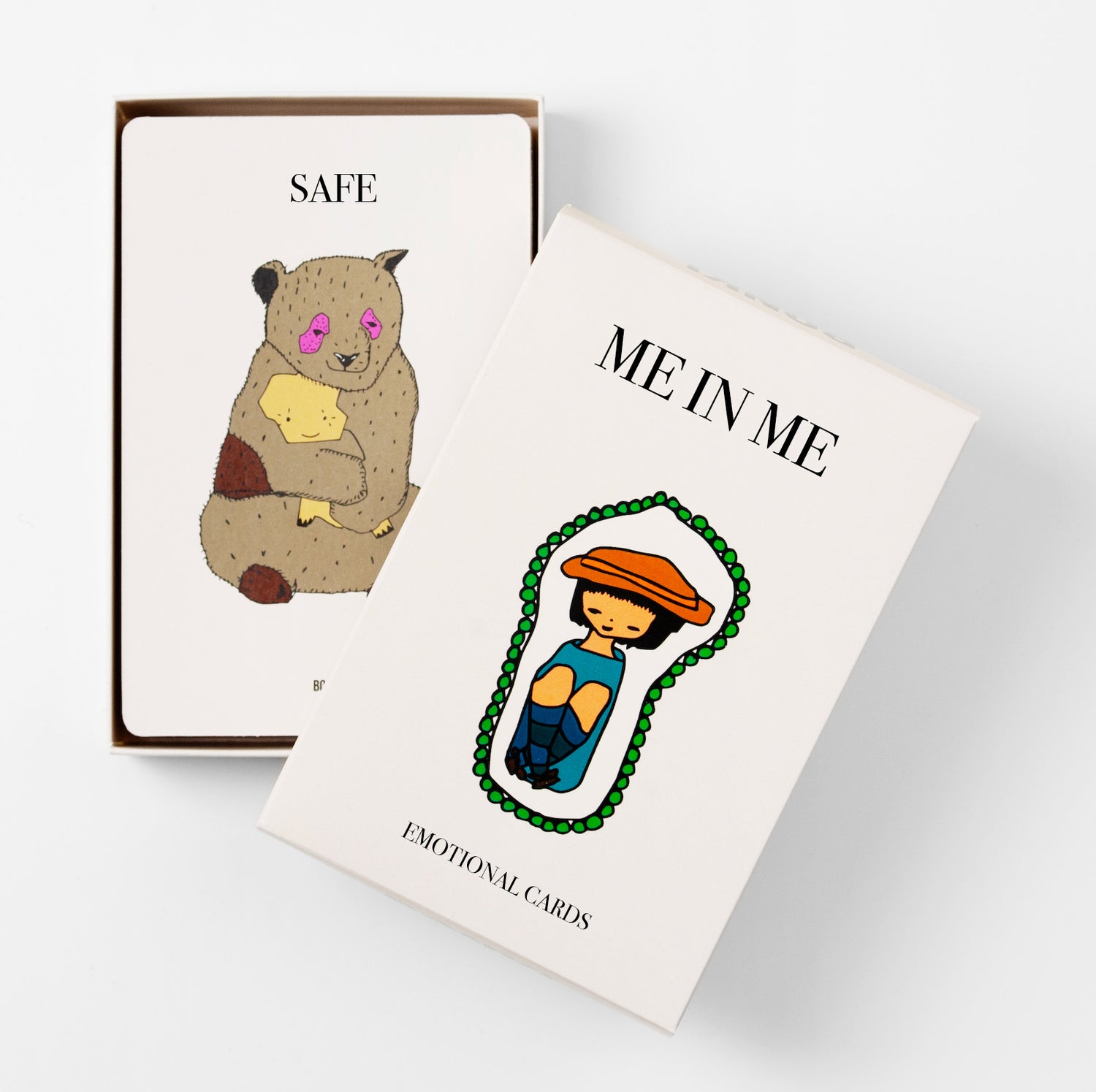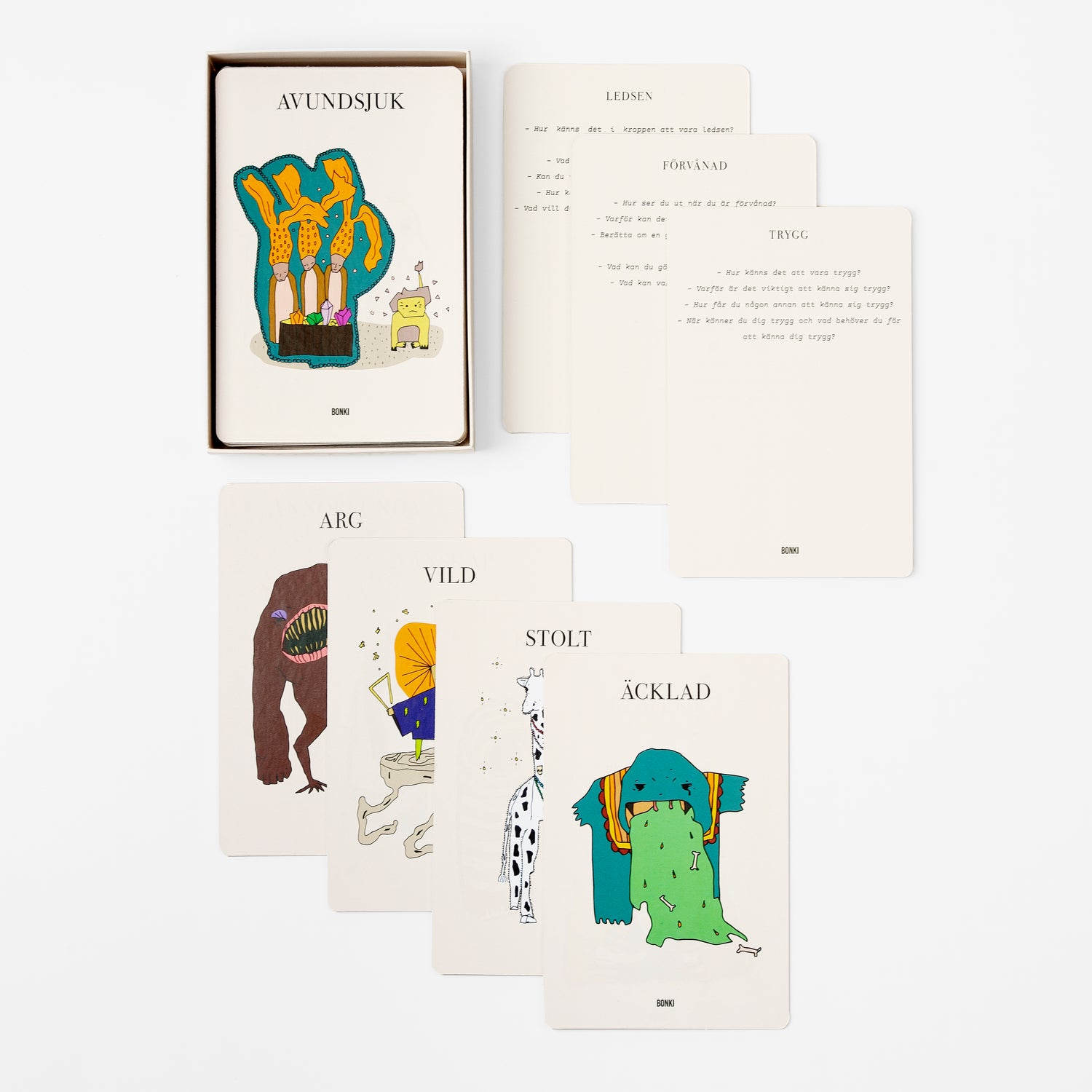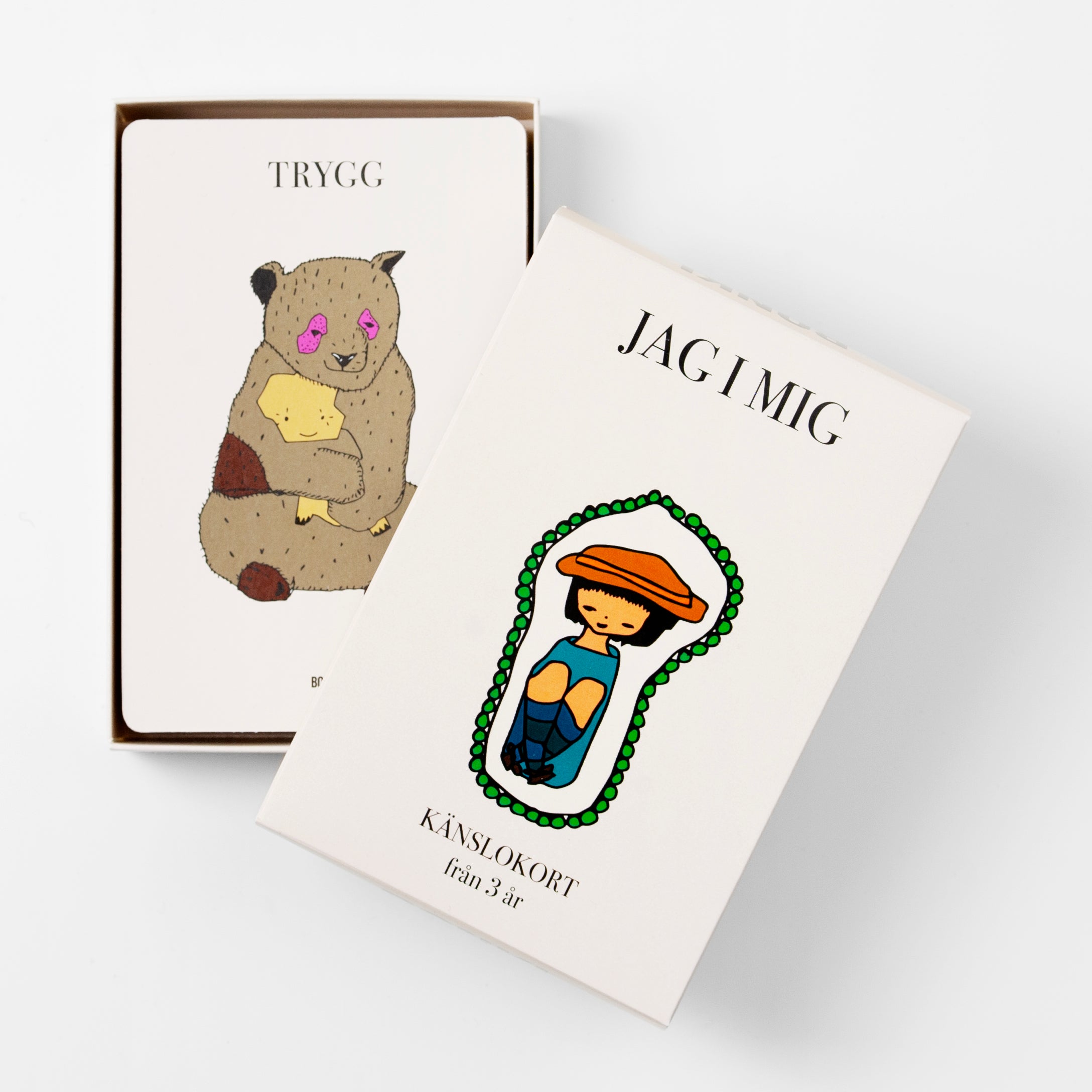
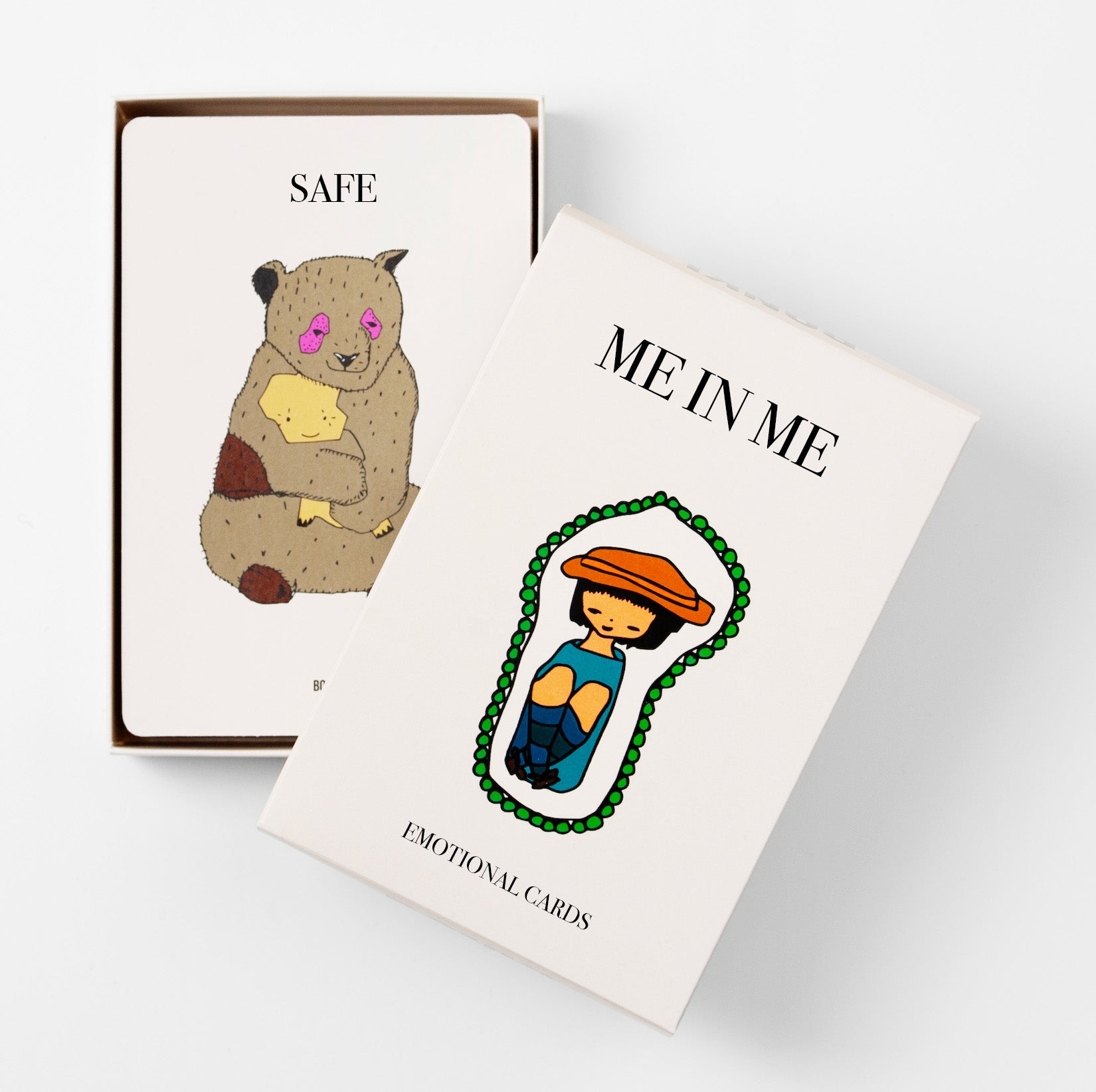
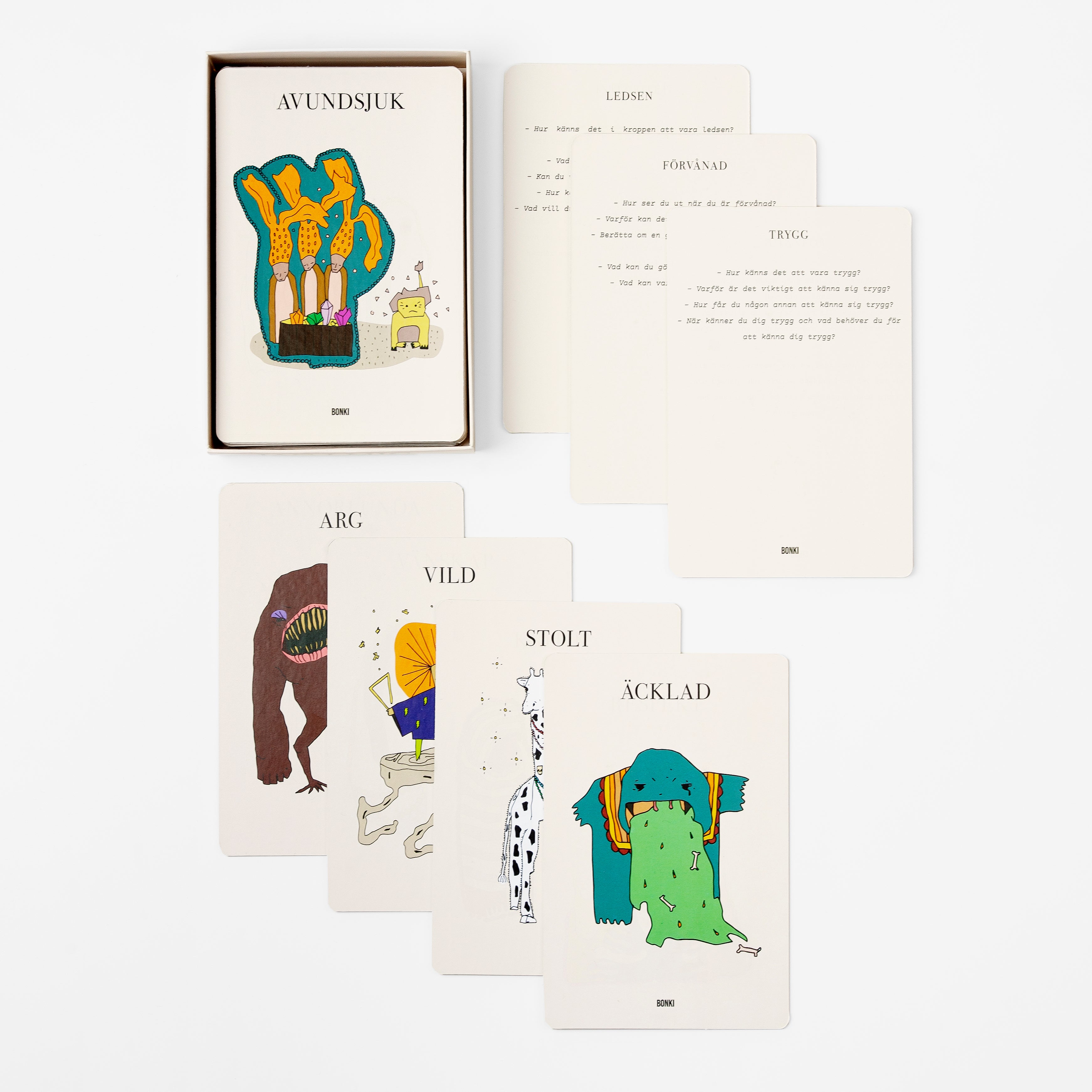
PRODUCT DESCRIPTION
- 21 high-quality cards
- On each card is a unique emotion represented
- To each emotion there are questions designed by licensed Psychologist & linguist
- The cards are illustrated to arouse curiosity & imagination
- Promotes compassion and self-esteem
- Large, sturdy and easy to handle (A6)
- Can be used from age 3 and throughout life.
WHAT FEELINGS & THEIR MEANING
- I
The self is a person's conscious perception of themselves and their innermost core. In a Freudian interpretation, the self is one of the three parts of the psyche: the id, the ego, and the superego. The ego functions as a mediator between the id's primitive instincts and the superego's ideals and morality.
- Jealous
When a person feels envy, they experience a desire to have something that others have or that they undeservedly have something that they value. It is often a combination of envy and a heartfelt desire to possess what the other person has.
- Stressed
Stress is a reaction that can be a physical, mental or emotional response to a perceived challenge or demand. It is a condition that occurs when people are exposed to external events of various kinds that involve strain. Stress is the body's reactions to these that trigger a "fight-or-flight" response in the body.
- Disappointed
A disappointed person often experiences a mildly negative feeling caused by something in the world not turning out as they had hoped or wished. Often a disappointed person feels down or dissatisfied, and the disappointment can be directed at a person, situation, or themselves.
- Jealous
A jealous person feels that the relationship they have with another person can be disrupted by a third person entering the context ("interfering"). This often involves a negative feeling of insecurity or fear.
- Determined
Being assertive describes a person's character as being confident, resolute, and firm in their will. A person who is assertive is often clear and confident in their ability to make decisions.
- Alone
A lonely person has a feeling of loneliness, that is, they are aware of the lack of contact with others. Loneliness can be physical by lacking human contact or emotional by feeling emotionally disconnected from other people.
- Wild
Being wild is a description of a person who is spontaneous, adventurous, and free from conventions. Children who play wildly are noisy and go beyond normal norms and limitations. Being wild can also be perceived as uncontrolled and messy.
- Surprised
A surprised person has a feeling of being surprised that something unexpected has happened. The feeling comes when the situation does not match previous experiences or expectations and can be both positive and negative.
- Afraid
Fear is a basic reaction to danger or threat. A fearful person experiences a feeling of anxiety, terror, or discomfort and often engages in a “fight-or-flight” response.
- Curious
A curious person has a feeling, usually one of pleasure, that contributes to and increases the motivation to want to know more about something that they have a need to explore or experience.
- Happy
Happiness is perhaps the most positive emotion. It occurs when we feel particularly satisfied with what is happening or with the conditions that currently exist.
- Shame
Shame is triggered in us humans, for example, when we perceive that we are being disapproved of by others for something inappropriate that we have done or said. It also comes as a result of self-criticism and beliefs that we have done something wrong.
- Proud
An experience of self-worth that gives a feeling of joy and satisfaction over one's own or someone else's achievements or actions.
- Angry
Being angry is an emotional reaction characterized by strong irritation and a motive to intervene, attack, defend, accuse, threaten, etc. An angry person often experiences irritation and frustration and can be experienced both physically and emotionally.
- Outside
Feeling left out occurs when people are not accepted or feel accepted in the context they find themselves in. A person who feels left out feels socially or emotionally distanced from other people or a specific group of people.
- In love
Being in love is a feeling of affection, caring, involvement, and helpfulness. A person who is in love experiences a deep sense of attraction and a "rush" at the prospect of meeting the person they are in love with.
- Sorry
Being sad means feeling down and despairing in response to something that has happened. It is an emotional reaction to negative events, setbacks, or unpleasant situations.
- Safe
Being safe is a state of protection and security, a feeling of trust that comes from the perception that there are no threats. A safe person feels safe and without worry in the situation they are in. It can be both a physical situation or an emotional situation.
- Disgust
A person who feels disgust has a strong feeling of disgust, and experiences this in response to something that is perceived as unpleasant or repulsive. The feeling can be due to tastes or smells, but also situations and behaviors that are perceived as morally or ethically unacceptable.
- Disgust
A person who feels disgust wants to distance themselves from something, hate it, think it is something terrible. Something that arouses disgust has reason to be afraid. It can be physical objects but also situations or people.
DO I HAVE TO START WITH EMOTION CARDS 1?
- No, our cards can be used independently of each other, and you do not have to start with Emotion Cards 1. You can start with Emotion Cards 2 if you think they will fit you better.
MUST THE CHILD BE OVER 3 YEARS?
- The age instruction is precisely an instruction, but not a limit. It is you as an adult that can best determine what suits your child. Some two -year -olds are talk machines, some 40 year olds are few -worded mussels.
IS EMOTION CARDS 1 ONLY FOR CHILDREN AGED 3-6 YEARS?
- No. We assign to a suitable starting age, but it is you as an adult who determines what is best suited. There is also no maximum age for Emotion Cards 1 and you do not have to switch to Emotion Cards 2 when the children turn six years. Emotion Cards 1 is valid from about three years and throughout life. Some of the best conversations we hear about are when children and their adults reflect on their emotions. Maybe as an adult, you would dare to try them with someone your own age?
Prevent mental illness

Children with high emotional intelligence
Calms down more easily in difficult situations by regulating their emotions
Have better focus, endurance and performance
Handles and navigates social situations better
Are less likely to develop destructive behaviors
Our cards are designed together with licensed psychologist and psychotherapist Ida Welbourn to suit both young and old.
When you listen to your child and share your feelings yourself, you are a role model for social and empathetic abilities and you teach them the basics of human interaction and communication.
Do you know what your partner feels in their body when they are angry?
What do you think your own adult would say?
To get started, choose a card and use the questions on the back to get the conversation started. Listen to how the child is feeling inside. The questions are there to support you, but let the conversation flow freely. Here, Ingrid, six years old, talks about the card safe:
“Safe is when someone walks next to and behind me”
“Not in front”
“No, absolutely not!”


